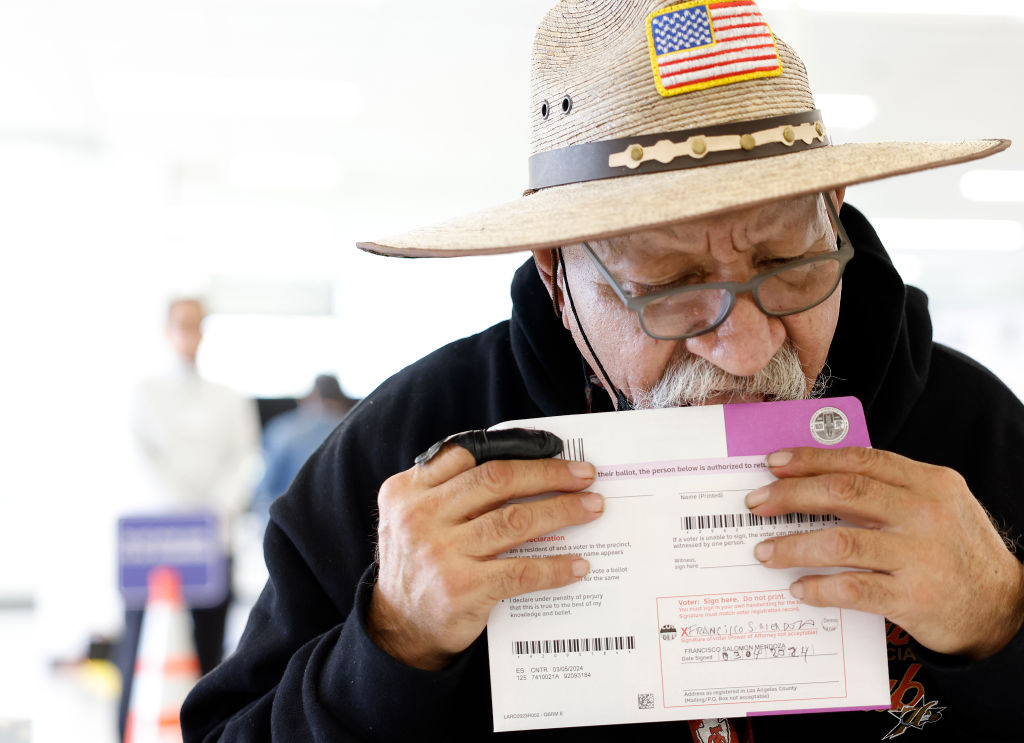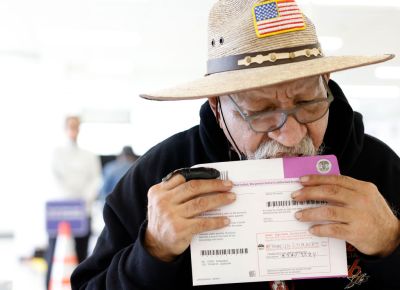Four years on from the start of the start of the coronavirus lockdowns, the world looks in many ways unaltered. We even have a do-over of the 2020 presidential election.
Many of the predictions of lasting change from the pandemic now look laughable. But other effects, once deemed “transitory,” are with us even still: inflation, crime, learning loss, etc.
The ways in which the pandemic most meaningfully changed our world, however, were often in how the epochal disruptions caused by shutting people in their homes for months accelerated existing trends.
Remote work was already on the rise when Zoom conquered our working world. Home cooking and food delivery were trending up even before everyone was making sourdough starters for 75 cent bread to eat with $100 Doordash orders. Netflix and other streaming services were already starting to rival traditional entertainment modes before the world became desperate enough to watch seven episodes of Tiger King.
Add to that list early and absentee voting.
Mail-in voting had been on a steady rise for decades before the pandemic, with a surge in the years immediately before 2020. In 2008, 17.4 percent of ballots were cast by mail. By 2018, it was 25.3 percent. Add in early voting and the broader category of “convenience voting” accounted for 40 percent of all ballots cast in the 2016 elections, double the share from 2004.
In 2020, 69.4 percent of ballots were cast either by mail or early in-person. We would not have seen a 73 percent increase in convenience voting from 2016 to 2020 without pandemic rules, but just the regular rate of increase we had observed since the start of the century would have pushed the number up anyway.
And that’s exactly what we saw in the post-pandemic midterms of 2022, when 47.1 percent of ballots were cast before Election Day—nearly 10 points higher than the previous midterms, four years before.
Like Zoom meetings, liquor-by-the-drink delivery, and sidewalk dining, convenience voting got a boost in the pandemic. While some returned to the old way of doing things, many remained in the new space. We won’t see nearly 70 percent of ballots cast that way this year, as we did in 2020, but I suspect it will be more than half.
But that has different implications for the major parties.
Democrats have traditionally been more amenable to early and absentee voting than Republicans. Some of that is a function of which states have permissive versus restrictive rules for convenience voting. It is a lot easier to vote in California, for example, than Alabama. So some of the partisan skew is a result of where convenience voting is available.
And then there’s this.
“There is tremendous evidence of fraud whenever you have mail-in ballots,” then-President Donald Trump told voters in swing state Arizona in the summer of 2020. Trump would go on to lose the Grand Canyon State by just 10,457 votes in November.
We can’t know for sure that his rhetoric about mail-in voting cost Republicans Arizona’s 11 electoral votes. Nor how much it contributed to the party’s 11,779-vote loss in Georgia. But if your party relies on older voters, a group that was rightly anxious about coronavirus, telling them to either go stand in line on Election Day or not to vote at all seems unlikely to help.
According to a recent Pew poll, Americans overwhelmingly support both early (76 percent) and mail-in (57 percent) voting. But Republicans, already more prone to vote on Election Day than early, shunned the practice with gusto in 2020: 37 percent of Trump voters voted in person, even with COVID restrictions, compared to just 17 percent of Biden voters.
Suspicions about voter fraud seem to be the obvious reason, despite the fact that there’s no evidence to support the claim that mail-in voting is more prone to rigging than in-person voting. But in recent years, it has been the practice of “ballot harvesting” that has driven Republicans batty over vote-by-mail.
The theory is that campaign operatives “harvest” absentee ballots from unlikely voters in, say, nursing homes, to pad their totals. Republicans accuse Democrats of the practice, even though the most infamous recent case involved a Republican candidate.
But even as Republicans on the state level seek to crack down on convenience voting, the national party and even Trump himself are trying to get over the costly attack on mail-in voting and get GOP voters mobilized for maximum turnout in November.
The clearest sign came from the presumptive nominee’s daughter-in-law, Lara Trump. Newly installed as the co-chairwoman of the Republican National Committee, Lara Trump vowed the committee would do “legal ballot harvesting” as a “huge part” of Republican get-out-the-vote efforts.
“We’ve been playing checkers, and the Democrats have been playing chess,” she told the Washington Examiner.
A recent Wall Street Journal profile described the new party boss as such: “Lara Trump is many things: wife of Eric Trump; a mother of two; a fitness fiend; a Tom Petty cover vocalist; a children’s book author; and a former ‘Inside Edition’ producer.”
If daughter Ivanka Trump was the mainstream media face and point of connection for blue-state elites to Trump World 1.0, her sister-in-law plays a similar role in the current version of Trump World. But Lara Trump, politically ambitious in her own right, is the conduit from the red-state incarnation of Trump to mainstream Republicans, the GOP donor class, and political professionals.
Eldest son Donald Jr. is a star on the wing-nut circuit and the aspiring proprietor of a lifestyle brand, but hardly a reliable liaison. He’s good for keeping the true believers cranked up, but not for doing the grown-up work of a campaign.
When we think about how the former president tore through the Republican primaries this year, there are many reasons to consider: the calamitous campaign of Florida Gov. Ron DeSantis, the tribal instincts triggered by the many prosecutions of Trump, the media obsession with the former president, etc. But having a professional campaign of Republican establishment A-listers shouldn’t be underestimated as a cause.
When Democrats get ready to square up against Trump again, they can count on his typically sloppy, selfish, erratic style. But as Team Trump showed in the primaries, having a real campaign organization behind him can mitigate the damage of his worst excesses.
And by making the RNC an extension of his family business, chances are better that Trump may be able to avoid the kinds of flare ups that marred his previous campaigns. No one is more capable of self-sabotage than Trump, but Democrats should beware. If the former first daughter-in-law gets the running room to make the RNC work, she could be very dangerous to President Joe Biden’s reelection chances.







Please note that we at The Dispatch hold ourselves, our work, and our commenters to a higher standard than other places on the internet. We welcome comments that foster genuine debate or discussion—including comments critical of us or our work—but responses that include ad hominem attacks on fellow Dispatch members or are intended to stoke fear and anger may be moderated.
With your membership, you only have the ability to comment on The Morning Dispatch articles. Consider upgrading to join the conversation everywhere.